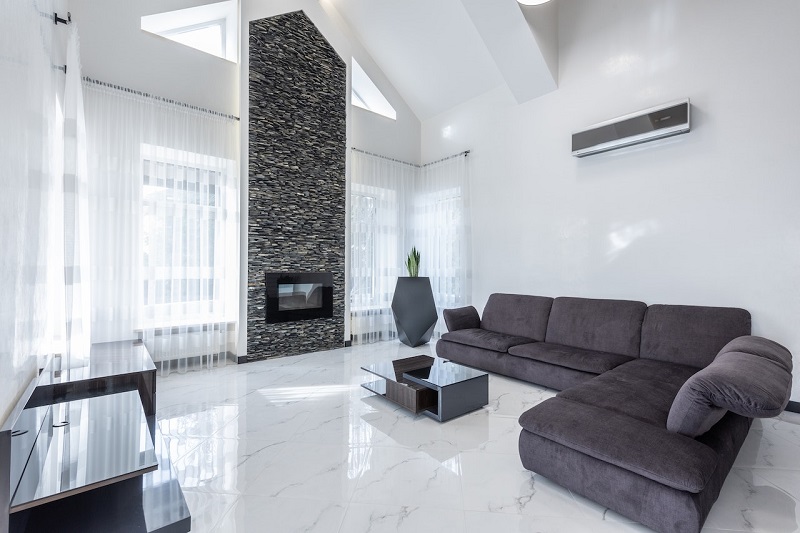As the summer months roll in, many homeowners find themselves facing the same challenge: how can they keep their home cool without breaking the bank? The answer lies in enhancing air conditioning efficiency.
Table of Contents
This article will explore 10 practical ideas to improve the efficiency of your air conditioning unit and ultimately save on energy costs:
1. Regular Maintenance
Regular maintenance is crucial for air conditioning efficiency. Just like a car, your AC needs routine tune-ups to run smoothly. Dirty or malfunctioning parts can cause your unit to work harder, consuming more energy and costing you more money. Regular check-ups from a professional can help identify and fix these issues before they escalate into costly repairs or replacements.
2. Thermostat Settings
A small adjustment in your thermostat setting can make a significant difference in your energy consumption. You can save up to 10% a year on cooling costs by turning your thermostat back 7-10 degrees Fahrenheit from its normal setting for 8 hours a day. The key is to find a temperature that is comfortable but not unnecessarily cold.
3. Consider Insulation
Proper insulation can significantly improve your air conditioning efficiency. Insulation helps keep the cold air inside your home and the hot air out. If your home isn’t properly insulated, your AC will have to work overtime to maintain a comfortable temperature. Insulating your home can be a cost-effective way to reduce energy consumption.
4. Upgrade to an Energy-Efficient Model
While it may be a more significant upfront investment, upgrading to an energy-efficient AC model can save you money in the long run. Energy-efficient units use less electricity to produce the same cooling effect, making them more cost-effective and environmentally friendly.
5. Clean or Replace the Air Filter
A dirty air filter can obstruct airflow and make your AC work harder than necessary. Cleaning or replacing your air filter regularly can improve the efficiency of your air conditioning unit and contribute to a healthier indoor environment.
6. Check Your Ductwork
Faulty or leaking ductwork can lead to significant energy loss. Regularly inspect your ductwork for leaks, damage, or insulation problems. If found, these issues should be addressed immediately to prevent further energy loss.
7. Use a Programmable Thermostat
A programmable thermostat allows you to pre-set temperatures for different times of the day. This means your AC doesn’t need to work as hard when you’re not at home, and you can return to a comfortably cool home.
8. Ideal Placement of the Unit
The location of your AC unit can significantly impact its efficiency. Placing it in a shaded area can help reduce energy consumption as it won’t have to work as hard to cool the air.
9. Properly Size Your AC
Size matters when it comes to air conditioning. An oversized unit will cool your home quickly but won’t effectively remove humidity, making your home feel damp and clammy. On the other hand, an undersized unit will struggle to cool your home on hot days.
10. Seek Help from HVAC professionals
While DIY efforts can improve your AC’s efficiency, nothing beats the expertise of HVAC professionals. They can provide a comprehensive assessment of your AC system and offer tailored solutions to improve its efficiency.
Conclusion
Enhancing air conditioning efficiency doesn’t have to be a daunting task. With a combination of regular maintenance, smart thermostat use, proper insulation, and professional help, you can significantly improve your AC’s performance. Not only will these steps provide a more comfortable home environment, but they’ll also result in substantial energy savings. It’s a win-win situation for both your comfort and your wallet.

